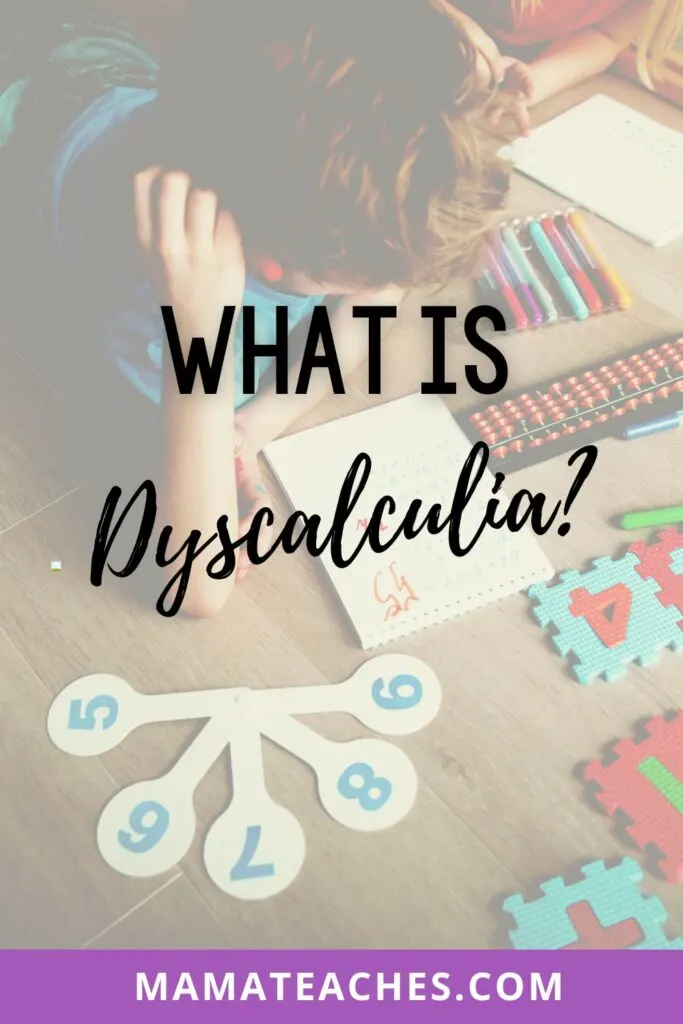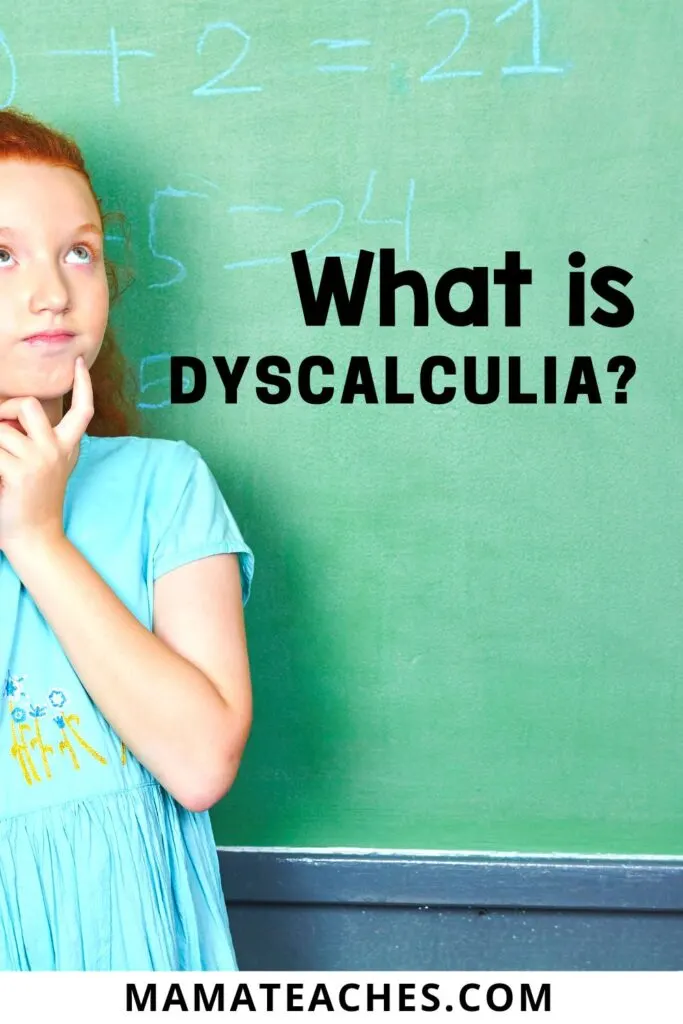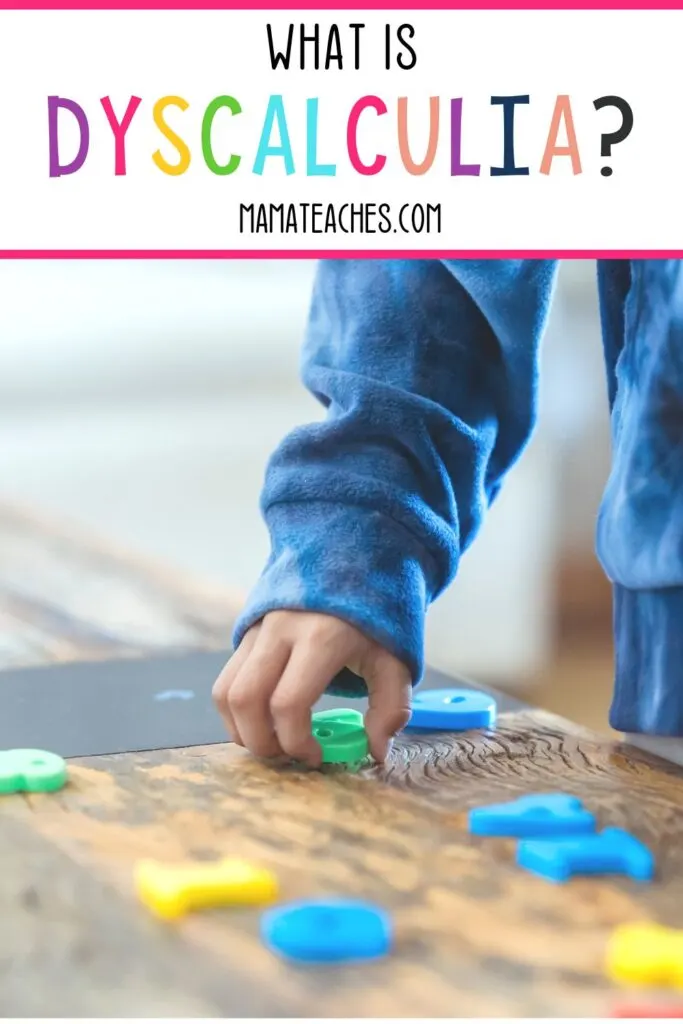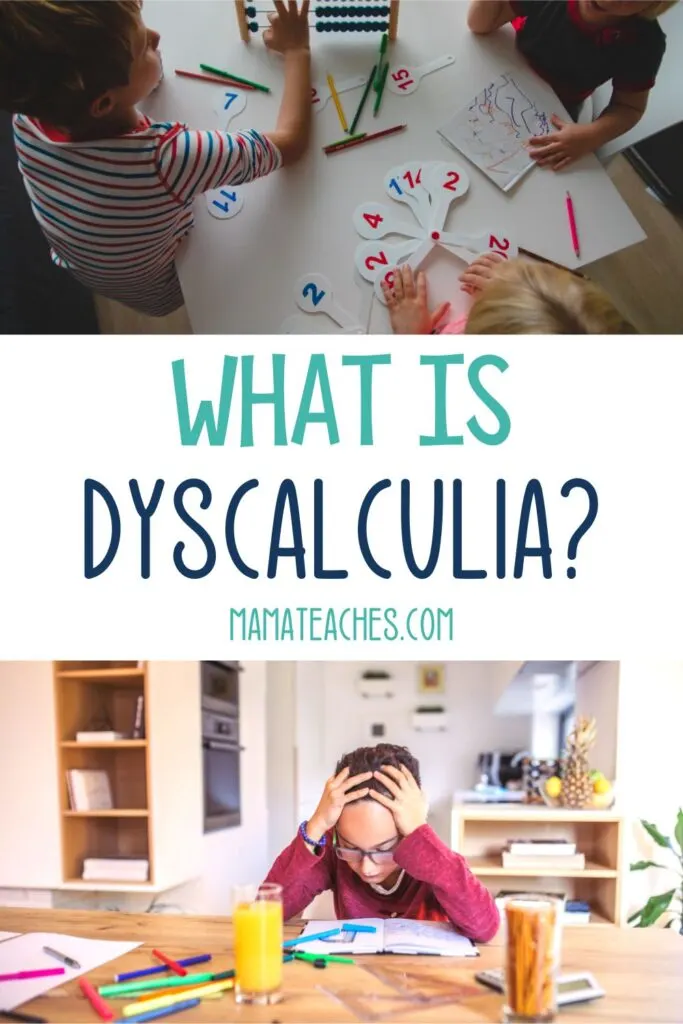Do you need information on dyscalculia? Learn about what it is, how to spot it, and what treatment options and accommodations are available.

What Is Dyscalculia?
Dyscalculia is a brain-based learning difference that affects a person’s ability to understand numbers and perform basic arithmetic operations.
It is sometimes referred to as “number dyslexia,” but it is a separate learning disability (although they may occur together).
If left unaddressed, a person with dyscalculia may develop a phobia of math.
How Children Get a Dyscalculia Diagnosis
Dyscalculia is not as well-researched as dyslexia, and there are a wide range of signs and symptoms.
A person may have some of these symptoms but not all. If you suspect a student has dyscalculia, they should be evaluated by a licensed school or educational psychologist.
Some estimates say that 5-10% of the population has dyscalculia.

Dyscalculia in Young Children
Young learners (like preschool and Kindergarten) who struggle with dyscalculia may skip numbers while counting.
They may find it difficult to relate numbers to real-world concepts, meaning they will struggle with manipulatives and counting out objects.
Young children with dyscalculia may also have trouble associating the written word with the numeral (like 8 and eight).
They may not form a mental picture of eight objects when you say, “Eight.”
They generally need extra time and effort to memorize numbers and math facts because, to them, the number is the symbol and nothing more. “8” is two circles that are stacked, not a quantifiable amount.
Dyscalculia in Later Elementary and Middle School
Children with dyscalculia struggle with learning math facts.
They also may still count with their fingers; mental math is a challenge.
They may confuse operational symbols like plus and minus or greater than and less than.
Word problems and other real-world math applications are difficult.
You may observe they avoid board games or computer games that have a math component.

Dyscalculia in High School
A person with dyscalculia may have difficulty with problems involving money, time, and formulas with units (such as “speed x rate = distance”).
They struggle with analyzing and interpreting data in graphs and charts.
Multi-step math problems or ones that require simplifying present a challenge.
A high-schooler with dyscalculia may complain that they hate math, and that dislike may spill over to math-tangential subjects like science and music.
Dyscalculia Treatment
People with dyscalculia benefit from one-on-one math instruction, strategies and coping skills, and accommodations.
These accommodations may include using a calculator in math, having access to written formulas or math facts, a reduction in math assignments (because math is so time intensive), and frequent check-ins.
Dyscalculia is a lifelong brain-based learning difference.
No one outgrows it, but they do learn to manage it with treatment and accommodations.
Currently, there is no medication to help with dyscalculia, but if a person has ADHD as a co-occurring disorder, treating the ADHD may improve the individual’s ability to focus on math.
The same is true for anxiety disorders. If a person has anxiety co-occurring with dyscalculia, treating the anxiety may improve the person’s ability to think clearly during math.

Dyscalculia in Adults
If dyscalculia develops later in life, it is referred to as “acalculia.”
Both dyscalculia and acalculia can be treated the same way.
Adults may use a math tutor to work on specific skills and talk with a mental health counselor if they have anxiety surrounding math.
If ADHD co-occurs with dyscalculia, treating ADHD may improve math concentration.
Adults may also use accommodations for dyscalculia at work.
These may include bringing a computer to work meetings, using a calculator, setting timers, and posting reference sheets for often-used formulas or data.

Definition of Dyscalculia
Dyscalculia is a brain-based learning disability that has no correlation with a person’s intelligence.
It only means that an individual struggles more than his peers at certain mathematical tasks.
It is difficult to spot because a person’s ability to perform math functions may vary from day to day.
If you suspect that you or someone you know has dyscalculia, seek evaluation from an educational psychologist.
There is a lot you can do to manage and treat dyscalculia so that it doesn’t hold you back.
